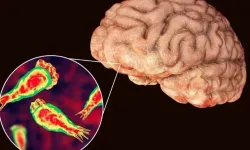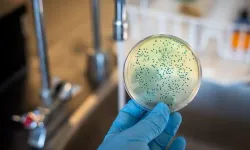Some foods and drinks can make conception difficult or harm the unborn baby. Shellfish, unpasteurized dairy products and soft cheeses are already avoided by many expectant mothers because of concerns that they contain bacteria that could put them or their unborn baby at risk.
But dietitians warn that there are other food groups to avoid when trying to conceive.
London-based consultant dietitian Ro Huntriss shares the foods and drinks that should be avoided or reduced when trying to conceive.
ALCOHOL
According to Huntriss, abstaining from alcohol is the first piece of advice for women trying to get pregnant. If you are pregnant or trying to get pregnant, the alcohol you drink can be passed on to your unborn baby.
Drinking during pregnancy can harm your baby in the long term and the more you drink, the greater the risk.
CAFFEINE
Although it has no negative effect on getting pregnant, caffeine should be limited when trying to conceive.
According to Huntriss, this is because consuming too much caffeine is associated with an increased chance of miscarriage.
It is recommended that women trying to have a baby consume no more than one cup of caffeine a day.
OIL FISH
Oily fish such as salmon, mackerel and sardines are rich sources of nutrients, so it may seem surprising that dietitians advise you not to overdo it when trying to conceive.
But Huntriss says: "Although they are an excellent source of iron, iodine and omega-3s, they should be limited to two portions a week because of the contaminants they contain. These can build up in the body and harm a developing child."
FOODS HIGH IN VITAMIN A
If you're trying to get pregnant, experts say you should avoid foods rich in vitamin A, such as eggs, beef liver and fish oil.
According to Huntriss, too much vitamin A can be harmful to the unborn baby.
TRANS FAT
If you're trying to get pregnant, you should avoid trans fats found in margarines, cakes, biscuits and fast food.
"Trans fat intake is associated with increased infertility and can affect the duration of pregnancy, which can lead to developmental defects and miscarriage," says Huntriss.
We recommend that you consult your doctor before following these recommendations.
Never consume these if you want to get pregnant!
A fertility nutritionist has shared the foods and drinks she recommends women who want to get pregnant should avoid.
Trending news

Snoop Dogg to carry the Olympic torch

Lily James Expresses Admiration for Hailey Bieber’s Rhode Skincare Line

Taylor Tomlinson Will Explore Her Faith and Sexuality on Tour!

'Alien mummy' in Peru raises eyebrows

Scandal in the heart of Europe: Child abuse in a church!

Kamala Harris’ Running Mate: Here’s Who Could Be Her VP After Biden Drops Out And Endorses Her









